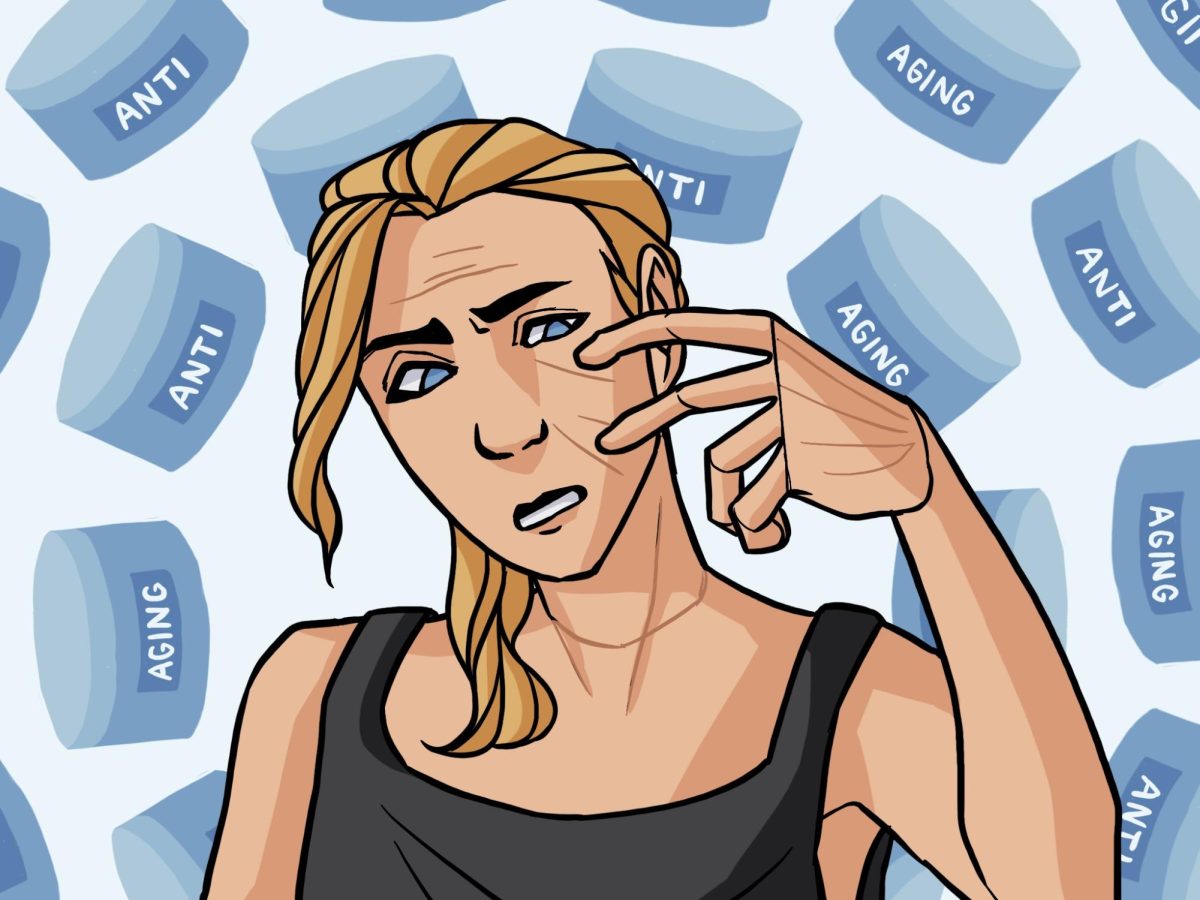#antiagingskincare tag on TikTok has 78.0M views, #antiaginghack has 12.4M views and #anti_aging has 7.5M views. When a platform as big as TikTok, used by two-thirds of teens according to the Pew Research Center, promotes anti-aging content, one has to wonder why teenagers care about aging.
Throughout history, women have been the target of toxic beauty standards, creating a narrative that only the most beautiful women are the most valued, and the reason is tied to sexism. Competitions like the Miss Universe Beauty Pageant often enforce this belief. Women – usually only young women – show off their bodies and beauty to be judged based on their looks and how they present themselves.
Men are rarely judged solely on their looks. No one looks at them and immediately decides their worth as a person, but for women, it is different. According to the Restless Network, as men get older, they are sexualized and praised as they age, becoming more attractive, but women are shunned and pitied for smile lines and forehead wrinkles, gray hair and natural aging.
Women receive products that enforce the “aging is ugly” narrative and they must “stop the clock” to stay beautiful and valued, while men are praised for aging. This can result in women – especially young girls who watch their mothers, aunts and grandmothers speak about how they wish they could be younger – feeling bad about their own appearance and using anti-wrinkle creams to prevent any signs they are growing up.
In addition to sexism, ageism plays a huge role in the enforcement of anti-aging beauty standards for women and teen girls. The song “Young and Beautiful” by Lana Del Ray, a popular musical artist among teenagers, explores how the world has viewed the singer as she ages.
“Will you still love me when I’m no longer young and beautiful?” Del Ray sings.
Del Ray fears her worth is at risk as she gets older. How will she be loved as she ages when she no longer looks as young as she used to?
Other popular artists like Taylor Swift also explore the issue. In the song “Anti-Hero,” Swift scrutinizes the fact that she is aging, which makes her less desirable and makes her feel like a monster.
“Sometimes I feel like everybody is a sexy baby / And I’m a monster on the hill,” Swift sings.
Swift began singing in her teenage years. The whole world watched her grow up, and oftentimes, people were unkind to her. She was bullied for getting older, and the media judged her appearance for any slight changes in appearance.
In “Anti-Hero,” Swift speaks up about what it was like to be continually inspected by others. She calls out the media and society’s obsession with being young, and as she matures, she feels as if she is the monster, even when the real villain is society’s beauty standards.
Teenage girls cannot escape society’s standards. Minors, especially teenage girls, are being marketed beauty and anti-aging products, and social media trends tend to result in hatred for girls’ features as they age. As a teenage girl, one is conditioned to always be beautiful and stay young and desirable in order to keep their value.
The TikTok filter “old age” shows users what they will most likely look like when they are older. The filter blew up, with mostly women using it and commenting on or making videos about how ugly they look. Other commenters agreed with them and left mean comments on their posts, which creates a negative environment for girls. In addition to filters, the TikTok algorithm pushes products for anti-aging that then go viral, making it impossible for users to ignore the effects of the products marketed.
The job of social media and cosmetics brands should not be to make women and girls insecure and feel like the products being marketed to them is necessary, which is extremely easy when women are already undervalued as they age, meaning women will be influenced to buy these products to feel desirable.
To end the negative environment that has been created by others around women’s aging, the cosmetic community must start normalizing the beauty of aging for women. Otherwise, double standards, ageism and young women’s insecurities will continue to be used and abused for profit.
Aging is beautiful, and many may not have the privilege to live long enough to form smile lines from laughter. As younger girls accept that their looks will change as they mature, they can end the negativity they have been forced to embrace within toxic beauty standards. Aging is not something young girls need to fear or run from. It is something they should welcome.


